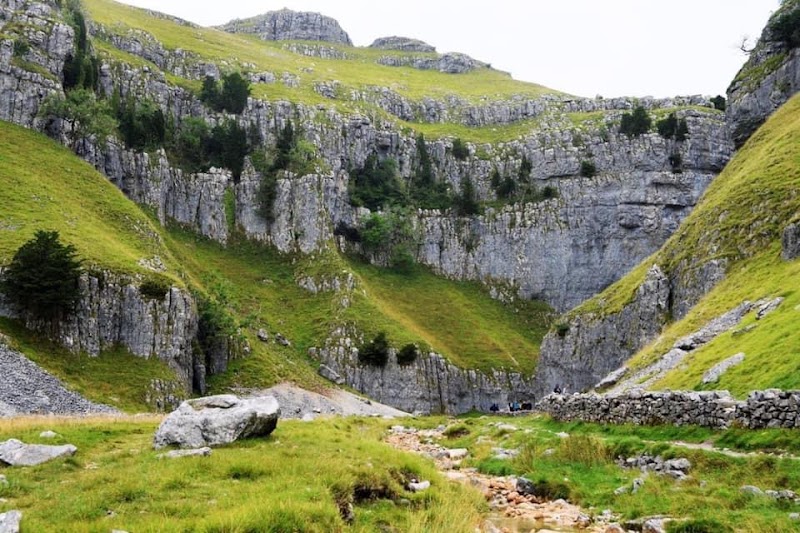
Discover North Pennines AONB through well-guided walks that balance rugged landscapes with practical routes around Alston, Cumbria. Local festivals deepen the experience, linking nature, culture, and history into unforgettable adventures.
Wear sturdy waterproof boots
The varied terrain includes rocky paths and occasional wet moorland sections, so boots with good grip and ankle support help prevent slips and fatigue.
Pack enough water and snacks
Expect 3-4 hours on guided walks; staying hydrated and energized supports steady pace and alertness, especially on exposed routes.
Check local weather in the morning
Weather can shift rapidly in the North Pennines; mornings are best for clear skies, but afternoon rain showers are common on moorland.
Book guided walks in advance
Local guides tailor routes to groups and the season, enhancing safety and enjoyment, especially during festival events with limited spots.
Exploring North Pennines AONB: Guided Walks and Festivals in Alston, Cumbria
The North Pennines Area of Outstanding Natural Beauty (AONB) near Alston, Cumbria, offers a rare blend of raw landscapes and accessible adventure. Here, local guided walks bring the landscape to life with a practical edge that lets every step matter. Trails range from forest tracks threading through ancient woodlands to open moorland where the wind dares you to match its pace. Expect distances between 5 and 10 miles, with elevation gains averaging 300-500 meters—enough to challenge without overwhelming.
One standout is the guided route through the Killhope Lead Mining Museum circuit. This 6-mile trail mixes gentle climbs with rugged paths where quarry walls tell of a fierce industrial past. Streams push you forward, their cold currents a reminder of nature’s persistent energy. For hiking footwear, prepare for rocky, sometimes muddy terrain — sturdy boots with grip make all the difference. Bring layers; weather shifts quickly, and the moorland air takes no prisoners.
Beyond daily walks, Alston livens up its local spirit with the annual North Pennines Festival. Running over several weeks in summer, the festival combines outdoor guided experiences, wildlife talks, and historical tours. Events like peatland restoration walks show how the land beneath your feet fights for survival, fiercely itself, while folk music nights bring the community’s heartbeat to life.
Timing is key: mornings break with crisp clarity, perfect for photography, with moorlands stretching wide, playing with light and shadow. Afternoon clouds often roll in swiftly, so hikers should pace to avoid short, heavy rains on exposed sections. Hydration is critical; even cooler days demand steady water intake.
For those planning a visit, nearby Alston serves as a practical base with accommodations from cozy B&Bs to practical inns. Local experts know the routes and help tailor experiences to your pace. Whether you’re an eager casual walker or a serious hilltracker, this grounded approach to exploration balances thrill with safety.
Ultimately, walking here is a conversation with the terrain—rock, water, and wind demanding respect. Guided walks deepen that dialogue, pairing raw experience with insight. Festivals tie these threads together, weaving nature, culture, and history into a living narrative. In the North Pennines, adventure is above all an engagement with a place that’s fiercely itself, inviting you to match its spirit on every step of your journey.
Nearby Trips
All Adventures
Boat Charters
Water Activities
Adventures near Alston, Cumbria
Discover the unique and memorable adventures that make Alston, Cumbria special.
Frequently Asked Questions
What is the typical length and elevation gain of guided walks in the North Pennines near Alston?
Most guided walks cover between 5 and 10 miles with elevation gains generally around 300 to 500 meters, combining manageable climbs with varied terrain to keep the experience engaging but accessible.
Are the guided walks suitable for beginners or only experienced hikers?
Guided walks cater to a range of abilities. Routes can be adapted to suit casual walkers through more moderate trails, though some routes require basic hillwalking experience and good fitness.
What wildlife might I encounter during these walks and festivals?
Expect to see red grouse darting across moorlands, curlews singing at dawn, and possibly deer in wooded areas. The festival often highlights local species and conservation efforts.
Are there any lesser-known viewpoints worth visiting during guided walks?
Look out for the vantage at Deadwater Tarn—a serene spot offering sweeping reflections of nearby fells away from the main paths. It’s often overlooked but provides stunning landscape shots.
What is the historical significance connected with the local walks and festivals?
The area’s mining past, particularly lead extraction, shapes many walks. Museums like Killhope inform the guided routes, linking landscape with industrial heritage and environmental recovery.
How can I prepare for rapidly changing weather on these hikes?
Layered clothing, waterproof gear, and checking morning forecasts are crucial. Carry extra water and inform your guide or a local contact of your plans as conditions can quickly turn.
Recommended Gear
Waterproof hiking boots
Protect feet from wet and slippery sections, essential year-round on rocky, mixed terrain.
Layered clothing
Adjust to quickly changing weather with moisture-wicking base layers and windproof outerwear.
Water bottle or hydration pack
Staying hydrated is key, especially on sunny, exposed moorlands.
Compass and map
Electronic devices can fail; reliable navigation tools are necessary for safety on less marked trails.
Local Insights
Hidden Gems
- "Deadwater Tarn - a calm, reflective pool offering peaceful seclusion"
- "Hartside Summit viewpoint - panoramic views that reward the steady climb"
- "Limestone Pavements near Alston - unique geological formations rarely crowded"
- "The Fairy Glen - a less-traveled valley with woodland magic and quiet streams"
Wildlife
- "Red grouse"
- "Curlews"
- "Mountain hares"
- "Buzzards"
- "Peatland butterflies"
History
"Alston and surrounding areas are heavily marked by their lead mining past, with working mines dating back to Roman times. The environmental consequences of mining have shaped modern conservation efforts and festival themes, blending natural recovery with human history."
